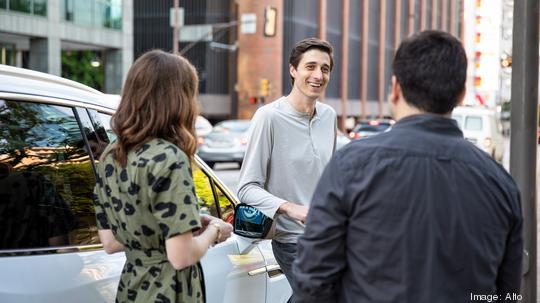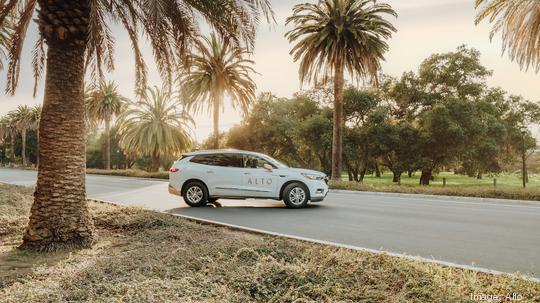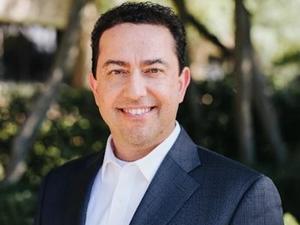
Uber and Lyft revolutionized the taxi industry primarily by altering what it means to be a taxi driver. With the gig economy model, practically anyone could take fares from practically any vehicle on a loose schedule with little oversight.
Alto Experience Inc. wants to be the counterrevolution, bringing more centralized control and a tailored experience of getting around by hiring drivers as full employees with health benefits, dental and even a 401(k).
"I think it is a really experiential product, but it takes until your second ride when you start to get it, where you say, 'Oh, it's the exact same,'" said Will Coleman, CEO and founder of Alto. "I think for most people it's the consistency they find so different, like with an Airbnb compared to a Marriott Hotel or your local coffee shop versus a Starbucks."
The young Dallas startup recently began offering rides in San Francisco, the home base of Uber and Lyft, focusing on the eastern half of the city between the airport and downtown. Earlier in the year, it entered Palo Alto and currently serves seven markets with almost 2,000 drivers employed across the country and a few hundred in San Francisco.
Coleman wants to put a stop to what he calls "ride-share roulette" — the experience of requesting a ride and not knowing what the experience will be like down to the type of vehicle and the temperament of the driver.
Alto trains its employees to greet the passengers the same way each time, and its fleet consists of only one type of vehicle, white Buick Enclaves that are deep cleaned daily and disinfected between rides. The company monitors rides remotely via cloud-based video cameras.
Riders on Alto can opt for a monthly subscription model at $12.95 per month for discounts per ride or opt for regular service that typically charges a base fare of $7 plus 64 cents a minute. Rides are typically more expensive than standard Ubers but less expensive than Uber Black luxury rides, according to the ride-hailing analysis site Ridester.

To date, Alto has raised almost $60 million with its last round in June 2021, a $45 million Series B.
The company will have to make the funding count as its expansion efforts are far more capital intensive than traditional ride-hailing models as it must lease warehouses to store and maintain its fleet of fully-owned vehicles, provide training centers and employee lounges for its drivers, along with office space for its team of supervisors and regional managers.
"We're investing money in something that has a much higher ROI," Coleman said. "Our customers are more loyal, they pay more per ride, they ride more frequently, meaning it makes more sense to invest in them. Our drivers are employees. And so they stick around with us longer, they drive more frequently, and they earn us more revenue."
Coleman, a former McKinsey consultant, says he has looked at the business models of his competitors and has doubts in their ability to be profitable.
"A lot of these companies that have raised a lot of money, in my experience, many of them have spent it ill-advisedly on inefficient growth, customers that aren't or can never be profitable, and in acquiring supply and drivers that are unreliable," he said. "If you look at Lyft in its latest quarterly earnings call, they said they would still have to invest in supply as demand came back, and investors are questioning how much longer it will take."
Perhaps it's ironic that a Texas company is coming to California, bringing a robust employee-centric vision of how to run a company since it's practically a cliché to see headquarters migrating to Texas, which has more flexible employment laws.
But Coleman believes this top-down, centralized model will win out the end, especially among customers that are willing to pay a premium for consistency.
"California is not an easy place to do business, the laws are very tough and it's incredibly litigious, and so for all those reasons, it was a big move for us to come here, especially in our position as a direct employer," he said. "In fact, some of our competitors, may look at the laws in California and say that they're overbearing, and the reason that they have their model is because the level of cost associated with having an employee in California is significant. But we believe that what we're doing is right, and not only is it the right way, but it's the way that we're going to provide the best product to our customers."
Besides expanding nationwide, the next step on Alto's roadmap is to convert its fleet to electric vehicles. It has already begun investing in charging infrastructure, but Coleman says the company has not yet found the right EV to fit its needs.








